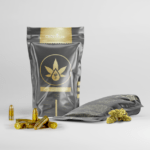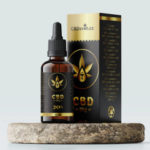Are CBD supplements harmful? What are the short- and long-term side effects of CBD and other cannabinoids? Who should avoid taking CBD altogether? Cannabidiol (CBD) is very popular these days. Everyone is talking about the benefits of this non-therapeutic supplement derived from the cannabis plant, which is used to combat anxiety, pain, sleep disorders, and more.
But is CBD safe? Has it been tested on humans? What are the side effects? In 2018, the World Health Organization (WHO) released a report on CBD: “CBD is generally well tolerated with a good safety profile.”
This report was one of the main factors that led governments around the world to revise laws on the use of CBD – it is now legal and available in most developed countries around the world. Although it shows a very promising safety profile, there is still some potential room for side effects. In only a few cases should people avoid CBD altogether.
In this article, we’ll discuss in detail the potential long-term and short-term side effects of CBD. We’ll also look at the likely causes of side effects, how you can minimize your risk, and what you can do if they happen. It’s a broad topic, let’s take a look at it.
Does CBD have any side effects?
The short answer is yes. Although the evidence shows that CBD is safe – it is not completely free of side effects. Any dietary supplements or drugs that cause physiological changes in the body have potential side effects;
CBD has many effects on the human body – meaning that some are likely to experience adverse reactions. We call these side effects. However, CBD tends to have fewer side effects. Problems related to CBD side effects most commonly occur at high doses of CBD, when mixing CBD with other drugs, or when taking CBD in combination with commonly occurring medical conditions;
What are the side effects of CBD?
Five common side effects can occur when taking CBD – low blood pressure, dry mouth, diarrhea, lack of appetite and fatigue. All of these side effects are considered short-term. This means that they will only last as long as the CBD remains active in the system. These symptoms disappear once the CBD is eliminated;
There are several approved CBD-based pharmaceutical products on the market, such as Epidoliex and Sativex. Much research has been done on each of these to assess their potential side effects. This research has given us a much better understanding of the potential adverse effects of CBD and other related cannabinoids. The side effects of CBD can be divided into two categories, short-term and long-term. We will look at all of them in more detail;
Short-term side effects of CBD
Once CBD takes effect, short-term side effects can occur immediately. They can last from a few minutes to a few hours. Once the CBD wears off, the side effects usually disappear as well;
Side effects of CBD may include:
– Low blood pressure (defined as blood pressure below 110/80)
– Sucho v ústech- Low blood pressure (defined as blood pressure below 110/80)
– Fatigue
– Diarrhoea
– Lack of appetite
– Nausea and vomiting
– Rash;
Long-term side effects of CBD
Long-term side effects do not appear right away. They develop over time with continued use. Very few long-term side effects have been reported with CBD. Many of these can be attributed to other aspects of CBD use – such as smoking, vaping or combining CBD with other pharmaceutical drugs;
Long-term side effects of CBD may include:
– weight changes (loss or gain)
– frequent infections (low immunity)
– abnormal liver function results
– feeling weak or tired
Current research on the safety of CBD
A large body of research is currently available in the scientific literature examining the safety profile of CBD. This research is essential for further testing to explore other therapeutic uses of CBD in human patients. Nevertheless, scientists cannot test CBD in relation to conditions such as epilepsy until it has been proven to be safe.Current research on the safety of CBD
Let’s take a look at some of the most important CBD-related safety research:
Bergamaschi et al., 2011 – This review focuses on 132 research papers that evaluated the safety and tolerability of CBD. These studies included in vitro research, animal testing, and clinical studies in human patients. The studies concluded that CBD is safe and well tolerated by humans, even at high doses over long periods of time. The researchers note that there are potential adverse side effects if CBD is taken in combination with other drugs or in connection with certain medical conditions.
Iffland & Grotenhermen, 2017 – The aim of this review was to build on the research published by Bergamaschi et al. The results of the study confirmed the original review’s conclusion and highlighted CBD as a safe and effective therapeutic supplement for the vast majority of patients. It also reported that the most common side effects were fatigue, diarrhea, and appetite/weight changes. The researchers also note that CBD is much more tolerable than other drugs used for similar purposes;
Johnson et al., 2013 – This study examines the long-term health effects of CBD and THC. Preparations with these two cannabinoids were given to 43 cancer patients every day for two weeks. The researchers say there were minimal side effects, and conclude that the preparations were generally “well tolerated.”
Devinksy et al., 2018 – This randomized clinical trial investigated the effects of CBD in the treatment of a rare form of epilepsy known as Dravet syndrome for 13 weeks. Thirty-four patients diagnosed with Dravet syndrome (aged 4 to 10 years) were divided into three treatment groups – 5 mg/kg, 10 mg/kg, 20 mg/kg CBD and an inactive placebo-controlled group. The study concluded that the majority of all patients tolerated CBD well (94% rate). The safety findings were consistent with another study. Some patients were found to have elevated ALT or AST (an indication of changes in liver function), but these elevations disappeared after CBD discontinuation. This is one of the best studies to date on the safety of CBD in children, especially since the doses used in the studies were significantly higher than standard CBD doses;
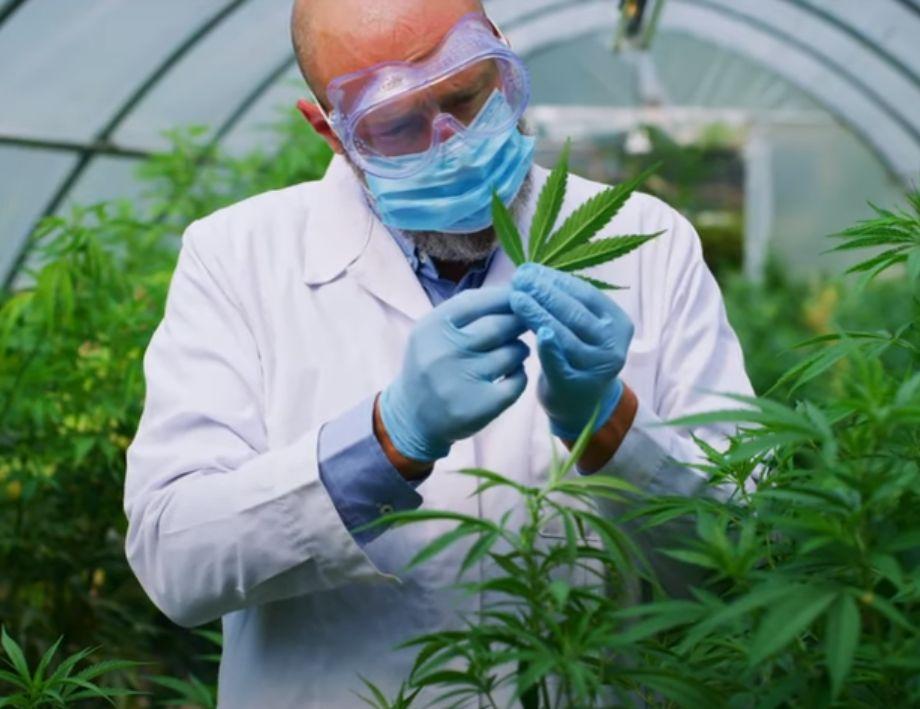
What causes the side effects of CBD?
The list of CBD’s effects on humans is long. They work by binding or modulating various receptors in the body. These receptors control other chemicals, cellular and organ functions. Such interactions with receptors produce the known benefits of CBD’s effects, but also some of its side effects.
There are other ways that CBD can cause side effects – some relate to how much CBD was administered, what other medications were taken along with it, common medical conditions, and the presence of contaminants in the CBD extract itself. We’ll cover each of these potential causes in more detail, as well as what you can do to minimize the likelihood of side effects.
1. Inhalation of smoke or steam
Different forms of CBD can cause other side effects. For example, smoking, dabbing or vaping CBD can lead to short-term side effects caused by inhaling the compounds through the lungs. Smoke inhalation causes lung damage along with an increase in the concentration of carbon dioxide and carbon monoxide in the blood. This can lead to side effects such as coughing, sore throat, fatigue and nausea;
There have also been recent reports of a condition known as lipoid pneumonia, which can even be life-threatening. This condition is caused by inhaling fatty substances into the lungs, such as evaporating oils or fluids. It is a rare condition and can be caused by any liquids, including CBD vaporizer oils.
How to minimize risks
The easiest way to minimize the likelihood of side effects from inhaling smoke or vapor is to take CBD orally in the form of oils, capsules, food or external CBD administration;
There are many excellent CBD products that do not rely on smoking or vaping to transfer CBD into the body. They spare the lungs and keep harmful compounds like carbon monoxide out of the blood.
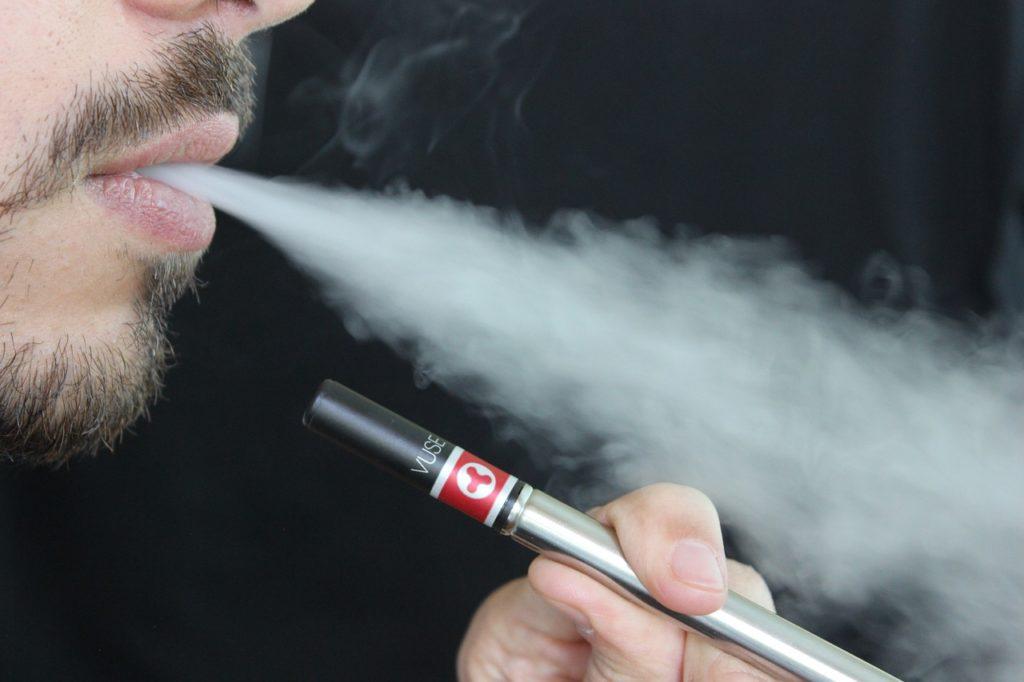
2. High doses of CBD
The more CBD you take, the stronger the effects will be. This applies to both the positive and negative effects of CBD. Several of the research papers mentioned above used high doses of CBD (up to 20 mg/kg) in their studies, which is significantly higher than standard CBD levels. While it is still safe even at these levels, the higher the CBD dose, the greater the chance of side effects.
How to minimize risks
If you’ve never taken CBD before, it’s important that you understand how to find the best dose for you. The effective dose of CBD varies for everyone, so you need to use trial and error to figure out what works best. Most people do this by starting with a low dose and slowly increasing it over time. Once you have achieved the desired effects in a certain amount, you will find your ideal dose. Some people continue to increase the dose until they experience mild side effects, then go back to the last level that didn’t cause any and stay with it. This is considered the maximum tolerated dose – or the highest amount before you develop adverse effects.
3. Interaction of CBD with other drugs
Whenever you take medications or dietary supplements, you need to consider how the active ingredients may work in the body. Even if you take them separately, they will eventually mix in the digestive tract and interact with each other in the bloodstream. CBD rarely interacts with other drugs. Yet there are a few exceptions. It can weaken or strengthen the effects of a drug, which could lead to the occurrence of its side effects.
How to minimize risks
There are many ways CBD can interact with other drugs. Even drugs that seem unrelated to the effects of CBD can lead to a negative interaction because of how the liver or kidneys process them. If CBD and the drug are fighting for the same pathway in metabolism, it can cause them to accumulate in the system, eventually leading to the development of side effects. For this reason, you need to talk to your doctor about taking CBD if you are taking any medications. He or she will give you more specific advice on whether CBD is likely to interact with the medications you are taking and what you can do to reduce the likelihood of side effects;
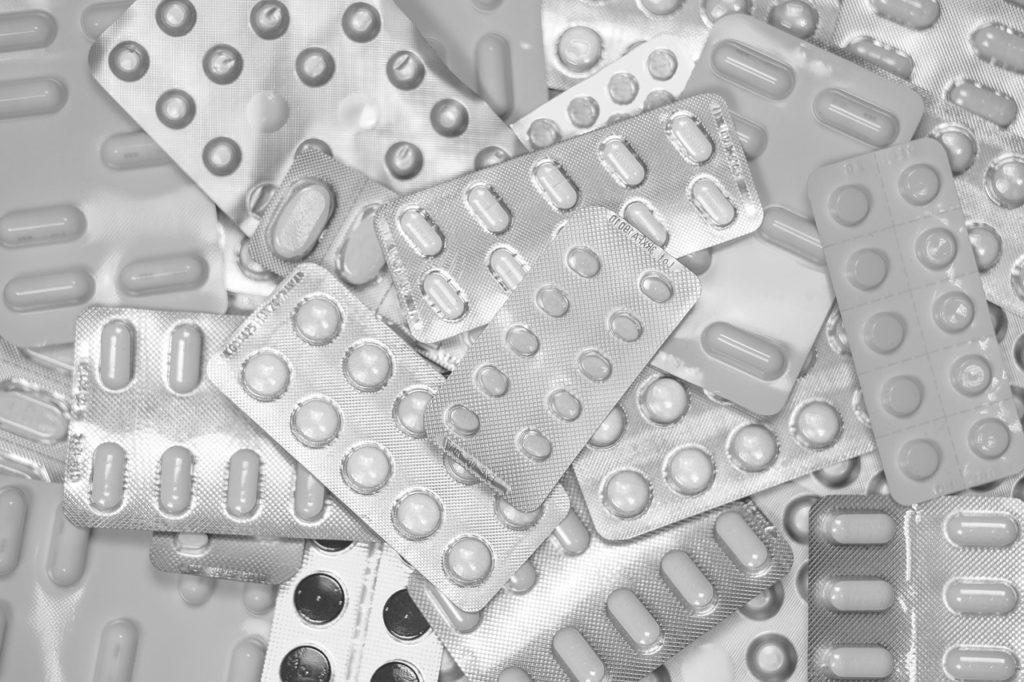
4. Basic health problems
CBD is well known to provide benefits associated with specific health conditions. There is a lot of research on how this cannabinoid affects diseases such as epilepsy, multiple sclerosis, cancer, arthritis and many others. However, some people may experience a worsening of their health condition after consuming CBD.
Some examples include Parkinson’s disease or hypotension (low blood pressure). Liver problems can also lead to CBD-induced side effects. Most chemicals that pass through the body must be metabolized in the liver before they can be excreted. If liver function is adversely affected in any way, CBD and its metabolites can accumulate in the blood, which can eventually lead to side effects;
Hypotension (low blood pressure) is one of the most underrated health issues that people should consider before taking CBD. Cannabidiol can cause a drop in blood pressure. For many, this could be a benefit. However, if a patient’s blood pressure is too low, this effect can cause it to drop to dangerous levels. In this case, the heart is unable to pump enough blood to the brain, leading to dizziness, confusion, or fainting.
How to minimize risks
If you suffer from some minor health problems, the best way to avoid side effects is to consult your doctor before taking CBD;
5. CBD products that are of poor quality or contaminated;
When discussing the side effects of CBD, its origin must also be taken into account. CBD oil can be contaminated during the growing and manufacturing process. These contaminants can lead to both short-term and long-term side effects – some can even be quite severe. Therefore, people should only buy CBD products from companies that publish independent laboratory analyses of every batch they put on sale;
Laboratory tests should identify all possible contaminants in CBD products, such as:
– Heavy metals
– Pesticides
– Organic solvents (such as propane, butane or hexane)
– Microbial contaminants (mycotoxins, bacteria, fungi)
– Psychoactive cannabinoids (THC, THCV)
– Synthetic cannabinoids
The occurrence of contaminated CBD products is not uncommon. It is therefore essential to check the supplier before placing an order. Beware if CBD oils are suspiciously cheaper than the competition. This is usually too good to be true. Many of these oils are made from cheap hemp grown in places like China or India, where soil contamination is common – leading to the accumulation of heavy metals or other harmful compounds in the final products;
Contaminants can lead to side effects such as:
– Headache
– Allergic reactions
– Skin rashes and conditions
– Blackout
– Confusion
– Nausea and vomiting
– Loss of vision
Some low-quality CBD oils may also contain the psychoactive cannabinoid THC. If the THC content is high enough, it will cause unwanted side effects that lead to the same results that some users deliberately seek;
How to minimize risks
Always buy CBD from a reputable manufacturer that provides clear evidence that each batch they produce is free of these contaminants. There are no safe limits for heavy metals, pesticides or organic solvents, so it’s important that tests show no traces of them;
6. Allergic reactions
Some side effects are the result of allergies. This can be caused by allergies to CBD itself, other cannabinoids or ingredients such as oils, synthetic flavour compounds or vaping liquids;
Allergies trigger the immune system, which constantly monitors the body to identify and destroy anything that poses a threat. The immune system sometimes evaluates a safe compound as a threat, leading to what we call an allergic reaction.
When a threat is detected (even if by mistake), the immune system immediately sends a fleet of white blood cells and chemicals to the affected area to fight off the intruder.This can lead to side effects such as skin rashes, swelling, swelling of the throat, including more severe respiratory closure, tachycardia (increased heart rate), increased blood pressure and loss of consciousness. Most allergies to CBD products are caused by chemical additives made from synthetic flavoring compounds or preservatives rather than CBD itself;
How to minimize risks
Allergies can be difficult to prevent and even harder to predict. For this reason, it’s a good idea to test a small amount of CBD supplement before taking the full dose to see if you experience any side effects. As for products for external use, apply a small amount to the skin and wait about 30 to 45 minutes to see if any adverse reactions occur. If not, you should be safe to apply the product to a larger area;
The procedure is similar to that for food. Start by eating small amounts. If possible, keep it in your mouth for a while. Wait 30-45 minutes to give your immune system time to react. If there are no side effects (most often swelling or itching), you can safely eat a larger dose.
What can I do if I experience side effects from CBD?
What happens when you start to experience side effects CBD? When should you start worrying? The vast majority of CBD side effects are mild in nature – meaning that even if you feel uncomfortable, the side effects will go away on their own. Depending on what side effects you are experiencing, certain measures will help them go away much faster;
1. Dry mouth
The best way to eliminate this side effect is to drink something fruity like orange or pineapple juice, drink water or chew gum. If you are well hydrated before taking CBD, the likelihood of this side effect is well reduced;
2. Dizziness
This side effect is quite common and usually does not mean anything serious. However, dizziness can also warn of a more serious problem. The cause is usually low blood pressure. So it is better if you can sit or lie down and rest for a while. This will allow blood to flow easily to the brain. It also helps if you drink some electrolytes before taking CBD. This promotes proper blood pressure.
If you lose consciousness or experience excessive dizziness, stop taking CBD immediately and consult a doctor about your symptoms;
3. Diarrhoea
This side effect is hard to stop once it occurs. You can take some medication, but by the time it starts, the side effect will probably go away anyway. It helps to take CBD with food to minimize the possibility of diarrhea. If diarrhea persists, it is wise to consult your doctor before taking CBD again;
4. Fatigue
Ingesting CBD is often the goal of its use, especially for people with sleep problems. However, not everyone welcomes this outcome. The simplest prevention is to take CBD with caffeine, which counteracts its sedative effects.
5. Lack of appetite
CBD can reduce appetite. While this is usually not a serious problem, it can lead to nutritional deficiencies, weakness, irritability, and weight loss. Taking CBD with food can help.
Do other cannabinoids have side effects?
CBD is not the only cannabinoid present in the cannabis plant. More than a hundred other cannabinoids are also formed in the plant – many of which end up in CBD oil. This is especially true for full-spectrum CBD extracts. Do any of these cannabinoids have side effects we need to worry about? Overall, the side effects of other cannabinoids are very similar to the side effects of CBD, with small differences; More than a hundred other cannabinoids also form in the plant – many of which end up in CBD oil. This is especially true for full-spectrum CBD extracts. Do any of these cannabinoids have side effects we need to worry about? Overall, the side effects of other cannabinoids are very similar to the side effects of CBD, with small differences.
1. Side effects of THC
THC (tetrahydrocannabinol) je primary psychoactive cannabinoid in the cannabis plant. Industrial hemp products have very low THC levels. They usually stay within legal limits to avoid psychoactive side effects. Products high in THC may have side effects associated with its psychoactivity;
Here are some of the most common side effects of THC:
– visual impairment
– increased appetite
– dry mouth
– paranoia
– dizziness
– headache
– fatigue
– changes in emotions and moods;
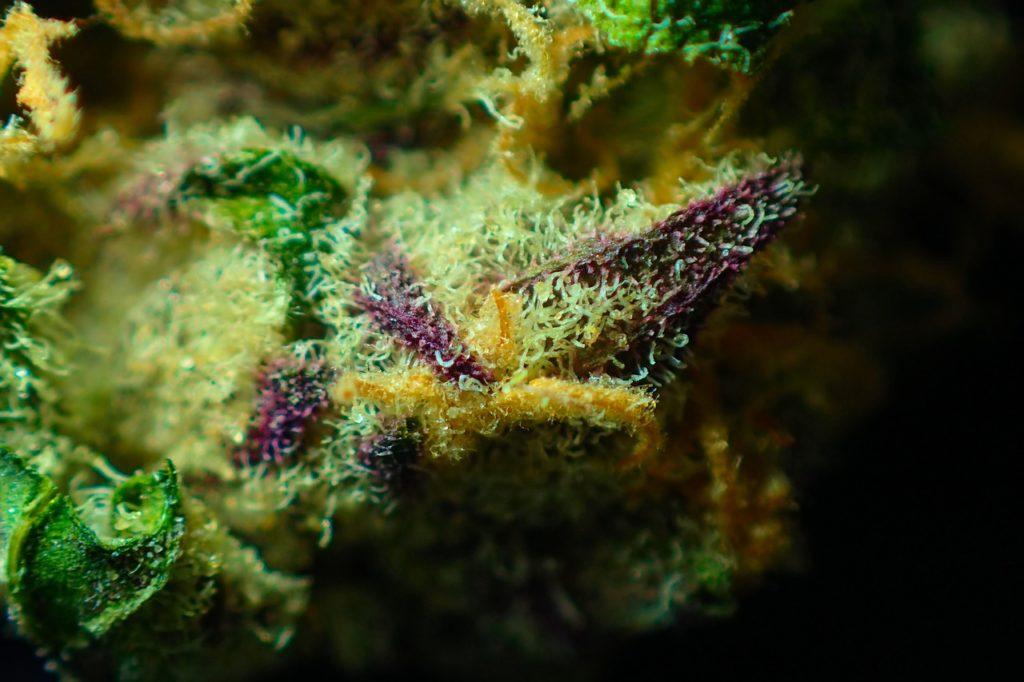
2. Side effects of THCV
THCV means tetrahydrocannabivarin. It is closely related to THC, but has much less psychoactivity and is found in much lower concentrations in the plant. This cannabinoid is unlikely to cause any real side effects associated with CBD products simply because of its low concentrations;
Here are some potential side effects of THCV:
– Visual impairment
– Paranoia
– Nausea and vomiting
– Mood changes
– Fatigue
3. Side effects of CBC
CBC means kanabichromen – it is the third most common cannabinoid next to CBD and THC; Some varieties have a high CBC content. There is therefore a potentially higher chance of this cannabinoid affecting side effects;
Possible side effects of CBC include:
Products that may be of interest to you
– Dizziness;
– Fatigue
– Seating;
– Nausea
– Reduced appetite
4. Side effects of CBG
CBG stands for cannabigerol. It is the precursor molecule for both CBD and THC. Plants that are harvested too early therefore have high levels of CBG. CBG exhibits several side effects and reportedly counteracts many of the psychoactive effects of THC.
Side effects of CBG include:
– Seating;
– Muscle weakness
– Nausea and vomiting
– Dizziness;
5. Side effects of CBN
CBN is at the opposite end of the scale to CBG. It’s a metabolite of THC instead of a precursor to it. As THC dissociates, CBN levels rise. CBN stands for cannabinol. It has not been found in high concentrations in industrial hemp due to a lack of THC. However, it is particularly present in plants harvested late or in full-spectrum CBD oils that are nearing the end of their shelf life. CBN is more sedating than most other cannabinoids, so sedation and fatigue are common side effects;
Side effects of CBN include:
– Seating;
– Nausea and vomiting
– Increased appetite
– Poor memory and concentration
Who should avoid using CBD?
Now that we’ve discussed all of the side effects of CBD and highlighted some of the factors that can alter these side effects, let’s look at a few examples of when you should avoid CBD altogether for certain health conditions;
1. Individuals with liver function disorders
CBD is metabolised in the liver – along with almost every other drug or supplement we consume. If liver problems already exist, it is difficult to metabolize CBD effectively, which will cause CBD (and other drugs) levels to remain high for a long time. If you suffer from liver disease (hepatitis, hepatic steatosis, cirrhosis, etc.), it is wise to consult your doctor before taking CBD.
2. Women who are trying to get pregnant
CBD and other cannabinoids are not tested for how it may affect the fetus. There are a number of theories that suggest CBD may negatively affect brain development. Therefore, if you are trying to conceive, it is wise to avoid taking CBD supplements.
3. Pregnant and breastfeeding mothers
As with the previous point, CBD should be avoided by pregnant and breastfeeding women. Cannabinoids interact highly with our central nervous system and can cause problems in the developing nervous system of infants. CBD is a fat-soluble substance and can be distributed to the baby through breast milk;
4. People taking certain medications (ask your doctor)
Some drugs can interact with CBD, as highlighted in several of the studies mentioned above. Here are some key patterns with which CBD may interact with drugs:
- CBD can increase the effects of drugs – this leads to increased CBD or strong side effects to drugs.
- CBD can prevent the drug from breaking down and then being excreted from the system – this can cause the drug to accumulate in the bloodstream and very likely reach dangerous levels.
- CBDs can change the effects of other drugs – this can make them ineffective at solving the problems they are supposed to help with.
- Some drugs interact with CBD more than others – for example, antipsychotics, blood thinners, blood pressure medications and painkillers.
If you are taking prescribed medication, always check with your doctor before taking CBD;
5. People suffering from low blood pressure
As mentioned above, CBD can cause a drop in blood pressure. If you already have low blood pressure, taking CBD could make the problem worse. It is recommended that people with low blood pressure (hypotension) avoid CBD altogether or take it under the supervision of a doctor;
6. Individuals with allergies to cannabis products
If you have experienced allergic reactions to hemp products in the past, be very careful when testing for CBD. Sometimes these allergies occur while smoking the plant material or with additives such as synthetic flavoring compounds or preservatives. In other cases, however, there are allergies primarily associated with hemp compounds or other phytochemicals that are also present in the plant. In case of severe allergic reactions such as anaphylaxis, avoid CBD products altogether;
Conclusion: is CBD safe?
Any active ingredient can cause side effects – especially compounds that have obvious physiological effects on the body. This includes CBD , which has a long list of effects and benefits;
CBD has been shown to be a safe and effective compound in clinical studies conducted on animals and humans. The side effects it can cause are very mild, such as dry mouth, a slight drop in blood pressure, diarrhoea, lack of appetite, fatigue or drowsiness;
Most people can avoid these side effects by following some of the advice above. For example, drinking plenty of water, taking CBD with food, combining it with other supplements such as caffeine, or limiting the dose of CBD alone;
However, in rare cases, these side effects may worsen. The most serious side effects come from allergic reactions, inhalation of smoke, vapors, or interactions with other medications and related medical conditions;
For this reason, it’s wise to discuss this with your doctor before taking CBD, especially if you suffer from any medical conditions or take medication. It’s also wise to start with a low amount of CBD (~2mg) to gradually work your way up to a higher dosage. Only then will you properly determine how the cannabinoid interacts with your body.



